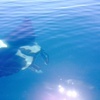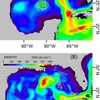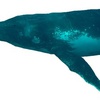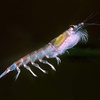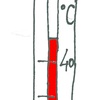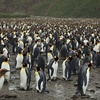
King penguins are already falling victim to warmer oceans
New research shows that warm sea-surface temperature anomalies in the region can cause shifts in the marine environment where they feed, forcing the birds to travel farther and dive deeper for their food — and causing declines in their populations. Read more about the impacts of warming seas on penguins in The Washington Post.


